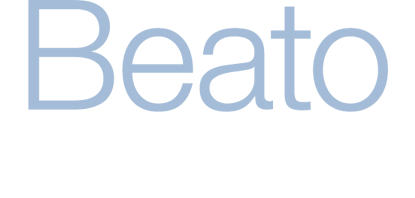Treatment approach
I want to take a moment to help you understand the types of therapy that I offer. First and foremost, being an effective therapist is an art. Good therapists tend to be the type of people that others have sought for help and advice throughout the ages as they have had an innate ability to counsel others. They can be compared to renowned artists like Michelangelo, DaVinci, or Van Gogh who were born with talent that no art class could ever teach.
A great, successful therapist has a much richer skill set than a good ear and shoulder to cry on.
While there is an organic component to our ability and desire to do this type of work, we also have invested enormous amounts of time and energy in the education and training that are required to become strong and competent clinicians. We are educated and trained in evidence based treatment approaches. Meaning that, there have been studies involving real world people, in real world conditions that have scientifically proven the effectiveness of the therapeutic approaches we use in our practice.
Our talent, education, necessary skills and training provide you with the support that you will need to work through conflicts that may preclude you from feeling overall satisfaction in your personal and professional lives.
Like a sturdy home, a relationship that works is based on a solid foundation:
Click the image to view a larger version. Copyright © 2000–2011 Dr. John Gottman.
The Gottman Approach
John Gottman and his team of researchers have been answering the difficult questions about marriage and divorce for the past 33 years in their apartment-style Love Lab at the University of Washington, in Seattle. By documenting couples, using cameras, microphones, one way mirrors and sensors tracking bodily sensations like signs of stress and relaxation, the researchers have discovered how to predict divorce with 91% accuracy, and even better,how to bring a marriage back from the brink of failure. By building love maps, knowing one another, fostering love and admiration, effectively managing conflict, creating shared meaning in the relationship, the couple can build a solid relationship foundation that can stand up to any hurricane. Of course, there is a huge emphasis on communication because as well know, it is a key component in any relationship.
Whether you and your partner have been living with relationship pain for years, newly weds, or just preparing for a relationship or marriage, come in and speak with one of our therapists. You can't afford to base the most important relationship of your life on a shaky foundation!
Susan Johnson’s Emotionally Focussed Marital Therapy
The International Center for Excellence in Emotionally Focused Therapy was founded by Dr. Susan Johnson and her colleagues in 1998, at the University of Ottawa, in Ontario, Canada. Over the decades, the team has refined their Emotionally Focused Therapy approach and has recorded in research studies a 70% – 75% reduction of distress among the partners and their immediate family members, with approximately 90% of participants showing significant improvements. Dr. Johnson has incorporated attachment theory into her therapy technique, and explains how childhood experiences have an ongoing and major influence on how we act in our present, adult relationships. Along with the dozens of scientific journals Dr. Johnson has authored, she has also published a number of books, such as Hold Me Tight, and Love Sense.
Gary Chapman’s Five Love Languages
For those of you who appreciate a more spiritual approach to couples counseling, Gary Chapman has researched and published the wildly popular New York Times bestseller, The Five Love Languages: How to Express Heartfelt Communication to Your Mate. Its premise: We all desire to love and be loved, but we each express our desires and affections in different ways because after all, each one of us is a unique individual. Makes so much sense doesn’t it? Ladies, have you ever thought to yourself: “He sends me flowers, when all I want is to talk.” Gentlemen, how many times has this thought ran through your mind: “She gives me a hug and wants to talk, when all I really want to do is decompress from my day.” Dr. Chapman has discovered that at times, it’s not a lack of love that is causing heartache; it’s the love language, in other words, the way we express our love for one another. He has determined that we each fall into one of five broad communication patterns, which also outlines the way in which we desire to be loved by our partners: Quality Time, Words of Affirmation, Gifts, Acts of Service and Physical Touch.

